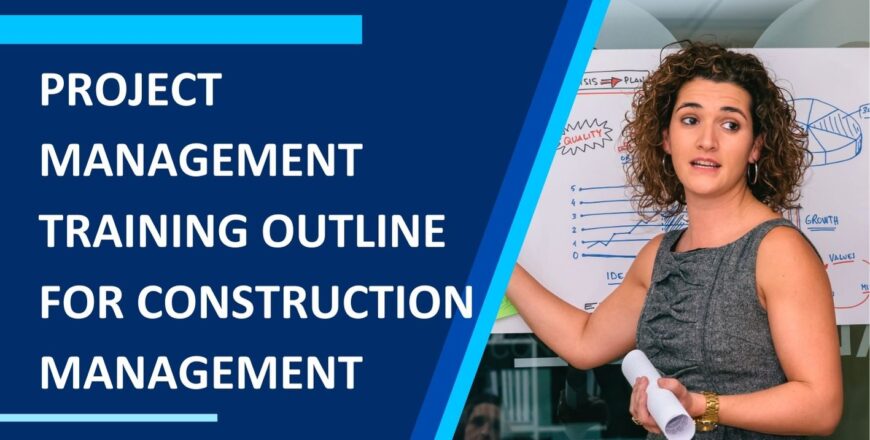
- Description
- Reviews
VIRTUAL INSTRUCTOR LED
COURSE DESCRIPTION
This specialized project management course focuses on the unique challenges and requirements of construction projects. Participants will gain a comprehensive understanding of project management principles and best practices tailored to the construction industry.
TARGET AUDIENCE
-
Construction Project Managers: Individuals responsible for overseeing construction projects
-
Construction Site Managers: Professionals who manage day-to-day operations on construction sites
-
Construction Engineers: Engineers involved in planning, designing, and executing construction projects
-
Construction Estimators: Professionals responsible for estimating project costs
LEARNING OBJECTIVES
-
Apply project management principles to construction projects: understand the specific challenges and requirements of construction projects
-
Utilize construction-specific project management tools and techniques: learn about tools like primavera p6, Microsoft project, and Bim
-
Manage construction project schedules and budgets effectively: develop and implement strategies for managing time and cost constraints
-
Address construction-specific risks and challenges: identify and mitigate risks such as weather delays, material shortages, and regulatory changes
-
Collaborate with stakeholders in the construction industry: effectively communicate with clients, contractors, subcontractors, and other stakeholders
-
Ensure quality and safety in construction projects: Implement quality control measures and adhere to safety standards
-
Construction Project Planning: Developing project schedules, resource allocation, and risk management plans
-
Construction Site Management: Managing day-to-day operations, coordinating subcontractors, and ensuring quality control
-
Construction Contracts and Procurement: Understanding contract types, bidding processes, and procurement management
-
Construction Safety and Health: Adhering to safety regulations and implementing safety measures
-
Construction Technology: Leveraging technology tools and innovations in construction project management
PREREQUISITES
-
Basic Project Management Principles: A general understanding of project management concepts, such as project lifecycle, scope, time, cost, quality, and risk management
-
Construction Industry Knowledge: Familiarity with the construction industry, including common construction methods, materials, and regulations
-
Technical Skills: Basic technical skills, such as reading blueprints and understanding construction drawings
-
Problem-Solving and Decision-Making: The ability to analyze problems, make informed decisions, and solve challenges that arise in construction projects
COURSE OUTLINE
Module 1: Introduction to Agile Principles and Construction Project Management
-
Agile Manifesto and its principles applied to construction projects
-
Comparison of traditional and agile project management approaches in construction
-
Key challenges and benefits of agile in construction
Module 2: Scrum for Construction Projects
-
Scrum roles adapted to construction context
-
Scrum events tailored for construction
-
Scrum artifacts applied to construction projects
Module 3: Kanban for Construction Projects
-
Kanban principles and visualization techniques
-
Kanban boards and their application in construction projects
-
Workflow management and continuous improvement using Kanban
Module 4: Lean Construction Principles
-
Lean principles applied to construction projects
-
Just-in-Time delivery and pull systems
-
Last Planner System for improved predictability
Module 5: Agile Tools and Technologies for Construction
-
Construction-specific agile tools
-
Integration with BIM software
-
Mobile apps for field operations and real-time updates
Module 6: Agile Risk Management in Construction
-
Identifying and mitigating construction- specific risks
-
Risk management techniques like risk assessment, mitigation planning, and contingency planning
Module 7: Agile Change Management in Construction
-
Managing changes effectively in a dynamic construction environment
-
Change control processes and documentation
-
Impact assessment of changes on project scope, schedule, and budget
Module 8: Agile Metrics and Reporting
-
KEY PERFORMANCE INDICATORS FOR CONSTRUCTION PROJECTS
-
DASHBOARDS AND REPORTING TOOLS FOR TRACKING PROGRESS AND IDENTIFYING ISSUES
-
CONTINUOUS IMPROVEMENT BASED ON DATA ANALYSIS
-
AGILE IN DESIGN-BUILD PROJECTS
-
AGILE FOR INFRASTRUCTURE PROJECTS
-
INTEGRATING AGILE WITH TRADITIONAL PROJECT MANAGEMENT APPROACHES
-
CASE STUDIES OF SUCCESSFUL AGILE IMPLEMENTATIONS IN CONSTRUCTION
